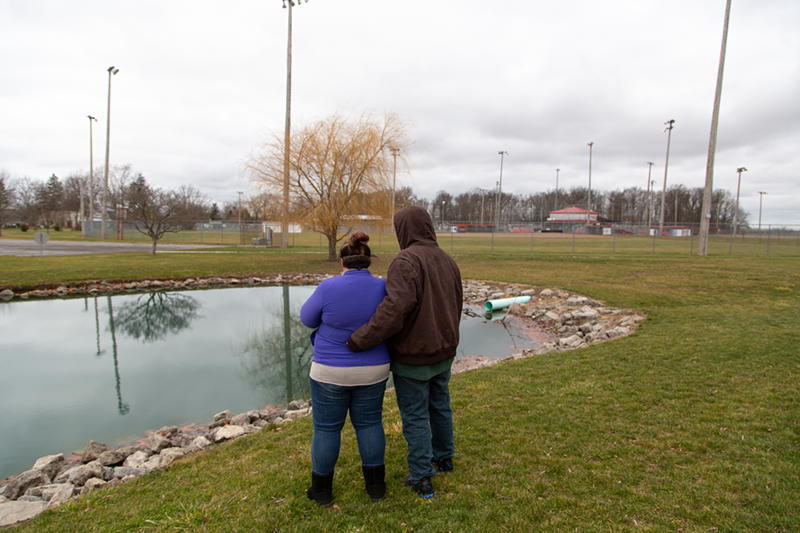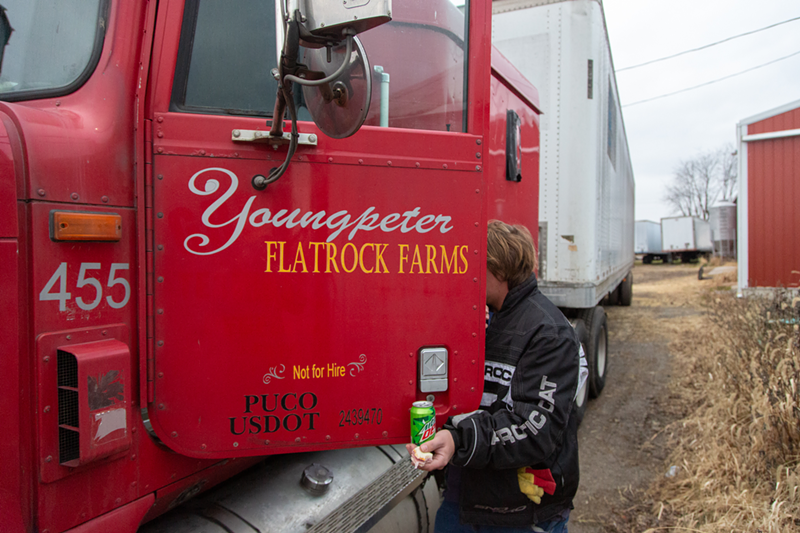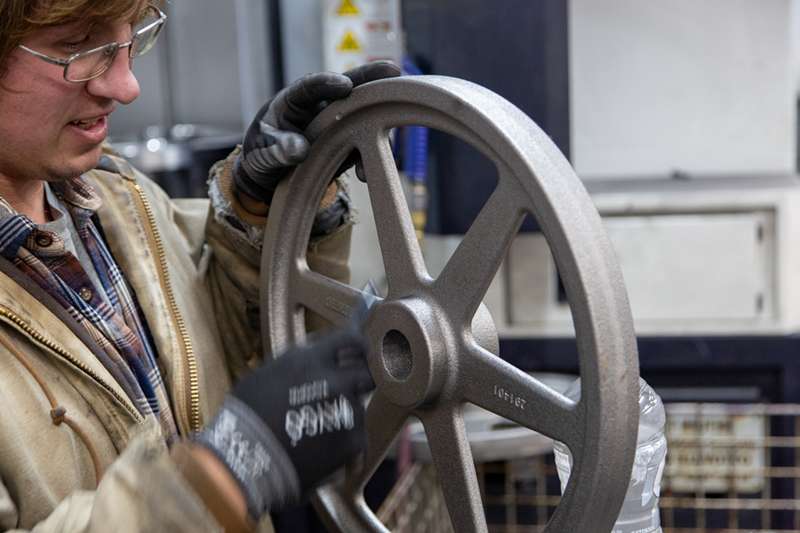I met Steve and his wife on a blustery December afternoon in Van Wert, Ohio. Steve works at a plant that produces parts used by medical personnel for ventilators and life support. When he stepped out of his pickup, I put on my mask and approached to say hello. I clumsily realized that he couldn’t understand; Steve is deaf and had to read my lips to communicate. We sat down, properly distanced, and I began to interview him via written questions.
As vaccines are being dispersed across the country, Governor Mike DeWine has announced a multi-phased plan for distribution in Ohio. Phase one is strictly for health workers and those in long-term care facilities. The next phase — according to recommendation and guidance from the CDC's Advisory Committee on Immunization Practices — includes essential workers like firefighters and police officers, members of the U.S. Postal Service, manufacturers, food and agricultural workers and grocery store employees. Steve and many other Ohioans in rural counties fall into this category.
Essential workers are crucial to the nation’s supply chains and support urban areas with vital resources. But many of these workers reside in counties with fewer medical supplies; Van Wert County has only five ICU beds for a population of over 28,000, according to Kaiser Health News. While yard signs and billboards celebrate these workers, there is little access to their real experiences. Data can’t reveal their personal struggles.
“We’re all risking our health,” Steve says. “I’d like a little more appreciation. (The plant hasn’t) offered any additional benefits or bonuses or nothing other than a sign that says, ‘Thank you essential workers.’ Moneywise we’re still struggling.”

Steve’s wife, who preferred not to give her name, also worked at a factory until she was laid off and returned to her old job at Wendy’s for half the pay.
“At first, when this virus started, I thought it was a plan to get Trump out of office,” Steve says. “Part of me still thinks that but I know a few people that have died of this virus and it’s kinda sad. I wear a mask in public. If we go to a store or something, I’m going to wear a mask.”
Face-covering becomes complicated for a deaf person, however, and at work Steve finds it increasingly difficult to communicate with co-workers. “Being deaf makes it hard because people have to pull down their masks to talk (to me) and I also have to pull down my mask because they can’t hear me — I mumble under the mask.”
Steve plays an important part in the medical supply chain, a system that relies on efficient transportation. I connected with a manager at Love’s Truck Care Center who lives in Van Wert County but works in Indiana. For the sake of anonymity, I’ll refer to her as Melissa. She couldn’t give her name because of company policy but agreed to a written interview. “My career is essential because we keep America moving!” she writes. “Without semis…America (and) the world just kinda stops.”
Her job involves coming into contact with people who make deliveries across the country.
“We deal with people from all over the world. I just met someone from Russia the other day! It’s crazy,” she says.
Evidently, these interactions bring increased exposure to the virus. Despite having a compromised immune system, Melissa admits to working a job that, “pandemic or not, carries a lot of risk.”
Like Steve, Melissa has received little in the way of extra support during the pandemic. “Some get ‘hazard’ pay, some (don’t),” she says. “It was only for a couple months and then it was gone.”
She tries her hardest to keep her chin up. “I refuse to let (the pandemic) come between me and my family and my friends…I would never give up my career for something less.”
I couldn’t help but wonder how a truck driver felt, one who might come into contact with a worker like Melissa. I approached Kyle Youngpeter from Spencerville, Ohio, for his perspective. He also happens to be my brother-in-law.
When I drove to meet Kyle, he was working to machine wheels for band saws used in meat packing plants, serving yet another important supply chain. This job was a part-time arrangement.
“On my taxes I’m listed as a farmer,” he says when I ask about his occupation. But he jokingly admits he’s a “jack of all trades, master of none.” The reality for him is that “farming doesn’t pay the bills.”
Kyle isn’t by any means a trucker who lives on the road, but he owns a rig and has hauled straw from his own farm, as well as mattress foam and other supplies, including essential resources. Kyle stressed to me that the idea of “cowboy” truckers roaming the country from coast to coast is only fantasy. All drivers follow a strict schedule tracked by computer with regulated driving periods and break times to ensure safety.
During the pandemic, truckers benefited from a greater number of routes carrying essential supplies that offered more flexibility. As these new essential jobs became popular among desperate truckers, however, pay decreased as a result.
“There’s nothing about trucking that makes you feel essential.” Kyle says. “I don’t know any truck drivers who wake up feeling essential.”
He laments that while many laud drivers as “on the front lines,” the same people will turn and lambast truckers for late deliveries.
“All people have to say is bad reviews, bad reviews,” he explains. “Truckers are an easy target because (we’re) outnumbered. Too many people want to bite the hand that feeds them.”
At the end of the day, it’s quite simple in Kyle’s mind: “I’m going to get in a truck and drive it because I need a paycheck.”
He and many others do their part to keep the country running, much like cogs on the gears of a great machine. The reason hospitals have necessary resources and grocery stores continue to be stocked is in large part due to the hard work of people like Steve, Melissa and Kyle.
Despite a heated election season and continuing health crisis, all three have the endurance to wake up every day and calmly persevere.
Melissa may have said it best: “Without essential workers...there is nothing.”
*Several sources in this story asked not to use their full names or real name. Their names have been changed or last names have been omitted upon request.







